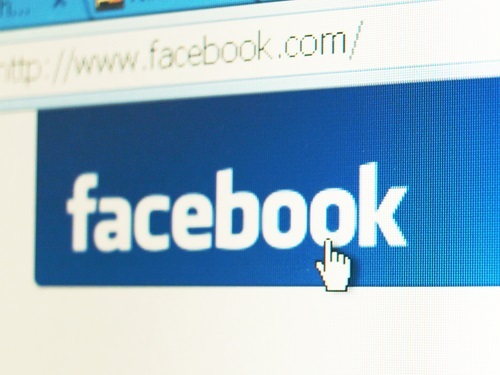Emotions Go Viral on Facebook

Feeling down? Happy? Angry? No matter how you're feeling, you can now blame it on your friends' most recent Facebook posts.
A new study published on March 12 in the journal PLOS ONE discovered that emotions can spread via Facebook. While positive Facebook posts tend to generate other positive posts, negative posts tend to generate negative ones. But here's the good news: Positive posts tend to be more "contagious" than the negative variety.
"For every one happy message that you write, our study suggests that your friends who live in other cities will be influenced by that to write an additional one or two posts themselves," said study author James Fowler, a professor at the University of California, San Diego.
"That means that these emotions that you're feeling and expressing aren't just felt by you, they're felt by your friends as well," Fowler told Live Science. [The Top 10 Golden Rules of Facebook]
Emotional contagion
Previous research has shown that emotions, whether positive or negative, can indeed be contagious.
In the new study, Fowler and his colleagues analyzed anonymous data on Facebook status updates from the top 100 most densely populated cities in the United States between January 2009 and March 2012. The researchers used rainy weather as an instrument, measuring how people reacted to drizzly skies in their Facebook posts and how their posts in turn affected what their friends wrote.
Sign up for the Live Science daily newsletter now
Get the world’s most fascinating discoveries delivered straight to your inbox.
"If it rains on your friend in New York, is it making you a little more miserable on a sunny day in San Diego?" Fowler said, describing the question the study aimed to address.
The answer, the researchers discovered, is yes.
The findings may have both positive and negative consequences for the public, Fowler said.
"Now, more than ever, we feel what the world feels," he said.
In it together
As the use of social media encourages an exchange of positive emotions, this effect could create an "epidemic of well-being" across the world, Fowler said.
But there is also a downside to the mechanism discovered in the study, he said. As people from around the planet communicate through social media, and their emotions become more uniform, "our mood, globally, is going up and down together," which was not typical of the pre-Facebook era, Fowler said.
Now, it is more likely that many people around the world feel down at the same time, he said.
"Globally, we may experience higher highs and lower lows," Fowler said.
"It is possible that this increase in the correlation of our emotions might also lead to greater volatility in our political systems," he said, referring to the role that social media played in the Arab Spring, allowing people to not only coordinate their actions, but also transmit their feelings about political events.
But why do positive emotions spread more readily than negative ones? Fowler offered two possible explanations.
"We tend to self-censor negative emotions," he said, adding that people frequently avoid showing their negative emotions, as they don't want these emotions to spread to other people.
The structure of Facebook itself provides another potential reason for the easier spread of positive emotions, as the site "is explicitly designed to promote the spread of positive messages," for instance through features such as the "Like" button, Fowler said.
Future research should try to determine the relative role of these two factors (the human tendency to hide negative emotions and Facebook's "positive" design) in favoring the spread of positive emotions, he said.
Follow Agata Blaszczak-Boxe on Twitter. Follow Live Science @livescience, Facebook & Google+. Original article on Live Science.









